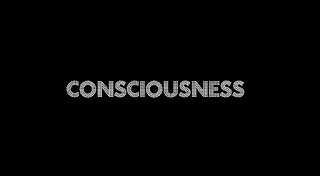Words of the Week: #1
Words of the Week: #1
1) The Great Debate: the Great Debate is a conflict between two different viewpoints on reading instruction. The Comprehension Hypothesis claims that we acquire language and develop literacy when we understand messages, by listening or by reading. The Reading Hypothesis claims that reading for meaning is the source of our competence in literate language; reading is the way we acquire (subconsciously absorb) vocabulary, spelling, writing and grammatical competence.
(Krashen, Stephen. "The Phonics Debate: 2004". Language Magazine, 2004.)
I think The Great Debate is important because it's something that teachers should be aware of, especially if they are teaching reading. They get to determine what side they are on and what is beneficial to their students. They may even incorporate both into their classroom.
 Photo: http://listentoread.com.au/wp-content/uploads/2016/11/A-B-C.jpg
Photo: http://listentoread.com.au/wp-content/uploads/2016/11/A-B-C.jpg2) Systematic Intensive Phonics Instruction: an attempt to teach all sound-spelling correspondences in a planned sequence. It's considered to be closely related to the Skill-Building Hypothesis.
(Krashen, Stephen. "The Phonics Debate: 2004". Language Magazine, 2004.)
Systematic intensive phonics instruction is important because it has shown that it can help. It has shown that it can make text more comprehensible for students learning how to read. It helps them to understand how to pronounce words easily. Additionally, studies have shown that systematic intensive phonics instruction is beneficial to second language acquirers.
 Photo: https://i.ytimg.com/vi/g0SFjRzqj94/maxresdefault.jpg
Photo: https://i.ytimg.com/vi/g0SFjRzqj94/maxresdefault.jpg3) Whole Language: is closely related to the Comprehension Hypothesis. Whole language is when a student reads to recognize words and develop their literacy. They use context clues to understand the meaning of the text and how to pronounce words.
(Krashen, Stephen. "The Phonics Debate: 2004". Language Magazine, 2004.)
I believe whole language is important because it's beneficial. It has helped students learn how to read and write. Teachers teaching reading should be knowledgeable about the whole language method because some of their students may respond better to whole language.
 Photo: https://blogger.googleusercontent.com/img/b/R29vZ2xl/AVvXsEgNzeK8wtT2PTDUHX3uX57da5Ex4K6yx-3IN_ke6ZsdZ2z5ffmwLa4QVlxDi1Y-Ro8D4Jb7uJ_wJI2wDWaAt24pmss11iJ_hn6DfCJiB3PJ5rAz_qgfofncpJRwbA-h4Xi7UAvNHCFzrW1G/s400/WholeLanguageApproach.jpg
Photo: https://blogger.googleusercontent.com/img/b/R29vZ2xl/AVvXsEgNzeK8wtT2PTDUHX3uX57da5Ex4K6yx-3IN_ke6ZsdZ2z5ffmwLa4QVlxDi1Y-Ro8D4Jb7uJ_wJI2wDWaAt24pmss11iJ_hn6DfCJiB3PJ5rAz_qgfofncpJRwbA-h4Xi7UAvNHCFzrW1G/s400/WholeLanguageApproach.jpg

Comments
Post a Comment